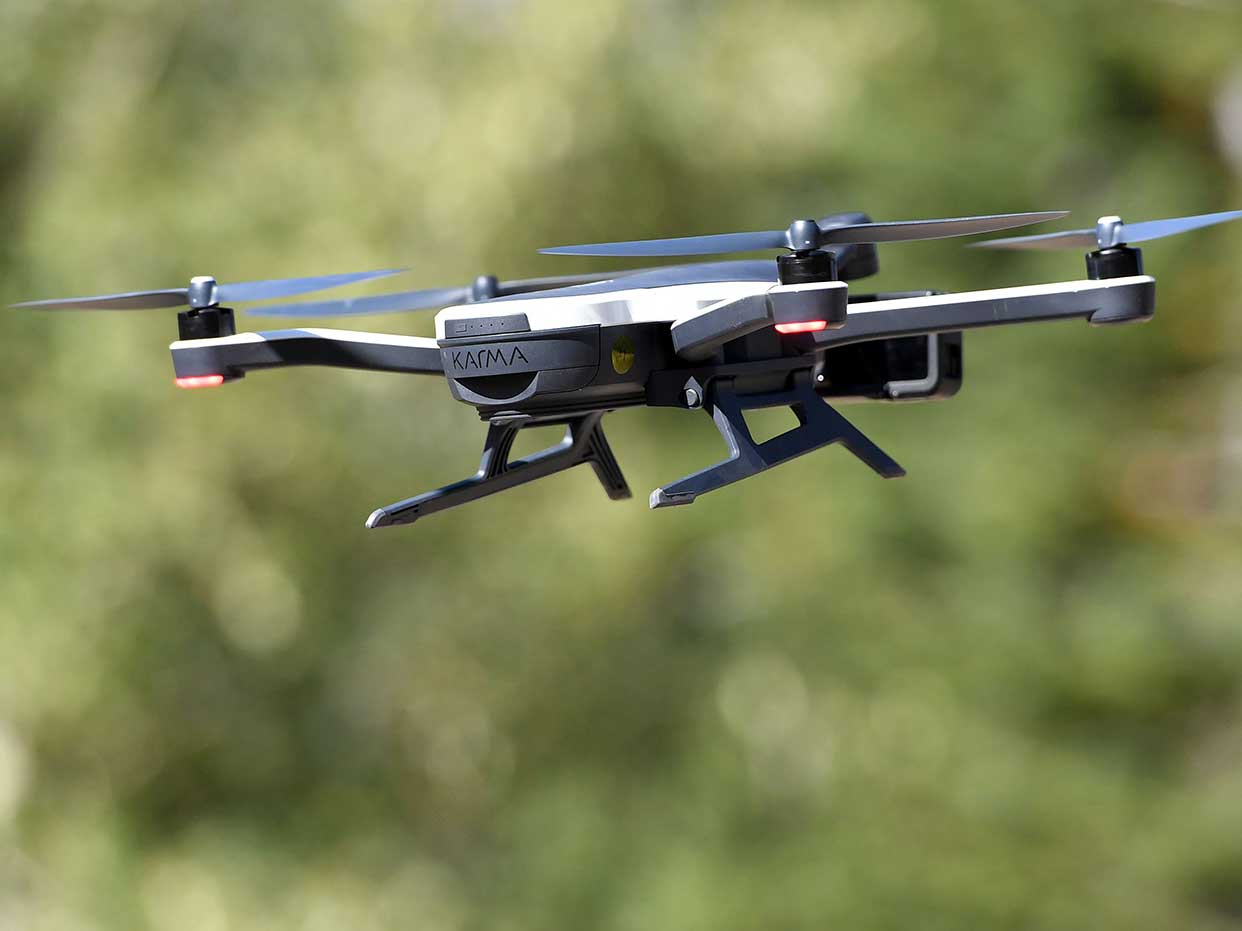Islamic State uses 'explosive drone' on Western forces
Two reported dead and two injured after attack on French and Kurdish fighters in northern Iraq

A free daily email with the biggest news stories of the day – and the best features from TheWeek.com
You are now subscribed
Your newsletter sign-up was successful
Islamic State militants have reportedly used a small drone packed with explosives to attack French and Kurdish forces in northern Iraq, according to Le Monde.
Two Peshmerga fighters died and two French Special Operations troops were injured, one of them seriously.
The strike is reportedly the first instance of IS using a commercially available drone as a weapon against Western forces.
The Week
Escape your echo chamber. Get the facts behind the news, plus analysis from multiple perspectives.

Sign up for The Week's Free Newsletters
From our morning news briefing to a weekly Good News Newsletter, get the best of The Week delivered directly to your inbox.
From our morning news briefing to a weekly Good News Newsletter, get the best of The Week delivered directly to your inbox.
"Drone use by militants and insurgent groups has steadily risen for years as cheap off-the-shelf models have become easily acquired and simple to fly," the Washington Post says.
The potential use of explosive drones by militants has been suggested before, by Washington think-tank the Centre for New American Security.
In a March 2016 report by former army ranger Paul Scharre, entitled Uncertain Ground: Emerging Challenges in Land Warfare, the group warned of the dangers of commercially available drones becoming "the new improvised explosive device" (IEDs).
"In the future, IEDs will come looking for US forces," says Scharre.
A free daily email with the biggest news stories of the day – and the best features from TheWeek.com
The Washington Post says insurgent groups in Syria and Iraq have used drones in the past for reconnaissance and occasionally "to drop what appear to be explosives".
French military officials declined to comment.
-
 Political cartoons for February 14
Political cartoons for February 14Cartoons Saturday's political cartoons include a Valentine's grift, Hillary on the hook, and more
-
 Tourangelle-style pork with prunes recipe
Tourangelle-style pork with prunes recipeThe Week Recommends This traditional, rustic dish is a French classic
-
 The Epstein files: glimpses of a deeply disturbing world
The Epstein files: glimpses of a deeply disturbing worldIn the Spotlight Trove of released documents paint a picture of depravity and privilege in which men hold the cards, and women are powerless or peripheral
-
 Greenland’s capital becomes ground zero for the country’s diplomatic straits
Greenland’s capital becomes ground zero for the country’s diplomatic straitsIN THE SPOTLIGHT A flurry of new consular activity in Nuuk shows how important Greenland has become to Europeans’ anxiety about American imperialism
-
 Epstein files topple law CEO, roil UK government
Epstein files topple law CEO, roil UK governmentSpeed Read Peter Mandelson, Britain’s former ambassador to the US, is caught up in the scandal
-
 Iran and US prepare to meet after skirmishes
Iran and US prepare to meet after skirmishesSpeed Read The incident comes amid heightened tensions in the Middle East
-
 Syria’s Kurds: abandoned by their US ally
Syria’s Kurds: abandoned by their US allyTalking Point Ahmed al-Sharaa’s lightning offensive against Syrian Kurdistan belies his promise to respect the country’s ethnic minorities
-
 Israel retrieves final hostage’s body from Gaza
Israel retrieves final hostage’s body from GazaSpeed Read The 24-year-old police officer was killed during the initial Hamas attack
-
 China’s Xi targets top general in growing purge
China’s Xi targets top general in growing purgeSpeed Read Zhang Youxia is being investigated over ‘grave violations’ of the law
-
 Syria’s Islamic State problem
Syria’s Islamic State problemIn The Spotlight Fragile security in prison camps leads to escape of IS fighters
-
 Panama and Canada are negotiating over a crucial copper mine
Panama and Canada are negotiating over a crucial copper mineIn the Spotlight Panama is set to make a final decision on the mine this summer